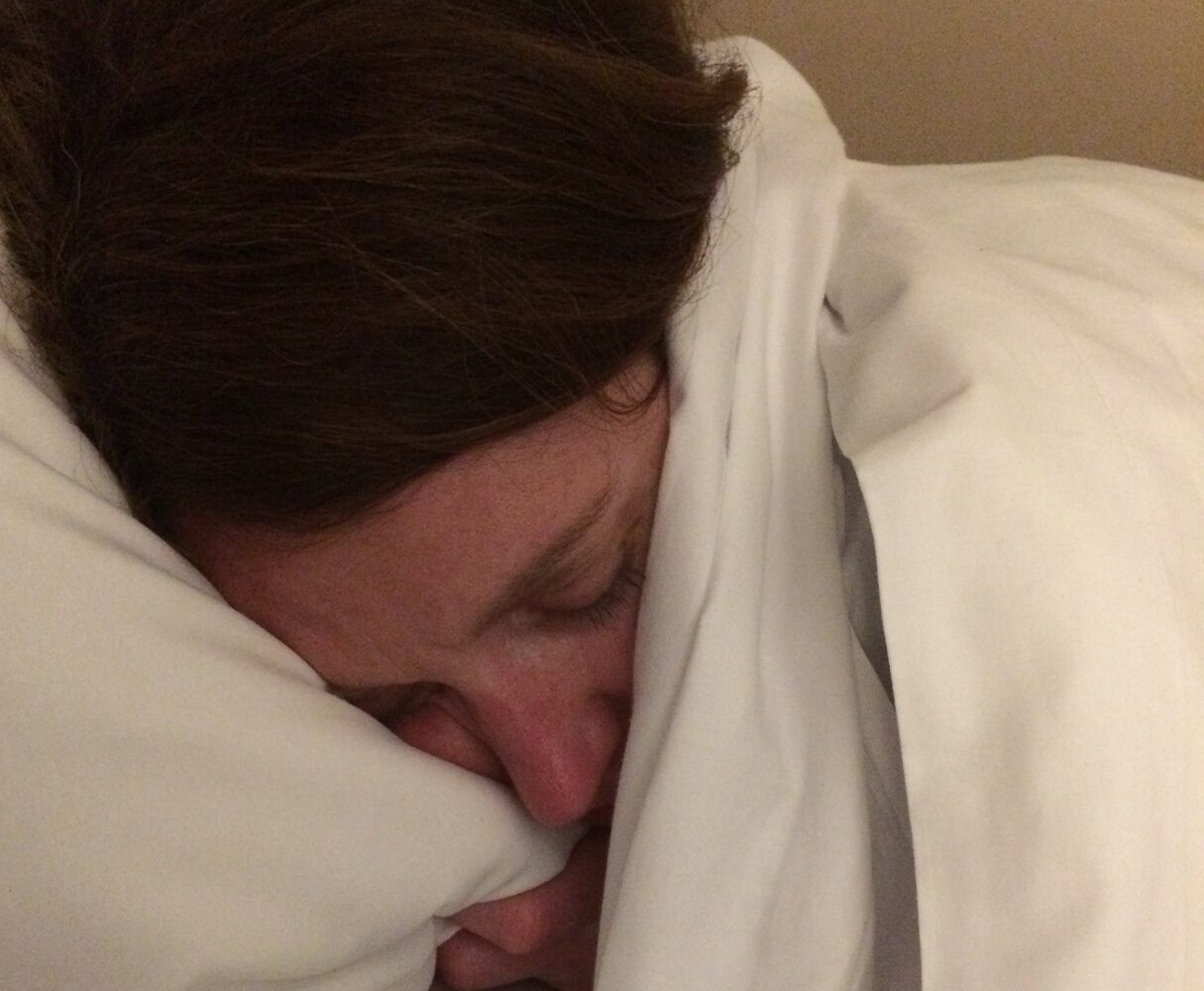This First Step to Weight Loss Is Sleep?

When it comes to losing weight, we've heard it all comes down to proper diet and exercise. But even if you're watching your weight and exercising on a regular basis, you could still have a hard time losing weight. If you're looking to get into shape then you may be excited to hear that quality sleep is just as important as diet and exercise.
What Happens When You Don't Sleep?
When you don't get your recommended amount of sleep, the stress hormone, cortisol, begins to build. When you have high cortisol, you not only tend to gain weight easier, but you also may see symptoms such as a flushed and puffy face, and experience fatigue and mood swings. Getting the correct amount of sleep, which varies from six to 10 hours depending on your age, can lessen or alleviate these symptoms. Find out how much sleep you should be getting. Our expert, Janet Huehls, clinical exercise physiologist, UMass Memorial Weight Center, finds that when patients are not getting enough sleep, either through untreated sleep apnea or lifestyle factors, they first need to improve sleep before setting larger exercise goals. Lack of sleep leads to less physical activity and more food cravings, but regular physical activity is a key factor to help improve sleep quality. The goal is to set very doable physical activity goals, such as short bouts of light to moderate activity several times a day rather than a longer, more intense period of exercise.Sleep for Muscle Refuel
Even if you are hitting the gym every day and eating healthy, sleep deprivation will keep you from being on the top of your game. Muscles grow stronger when they rest after exercise, so limited recovery time, in this case sleep, limits the body's ability to gain strength. Strengthening your muscles is important to build bone strength, control blood sugar and counter the metabolism-lowering effects of dieting to managing body fat. Muscle also burns more calories, so activating your muscles means increasing your metabolic rate, which keeps your calories burning even after you end your workout. Once you have your recommended amount of sleep, you may also find it easier getting yourself into the gym and reaching your exercise goals.What Contributes to Sleep Deprivation?
Why is it so hard for us to get the correct amount of sleep? Well, what should be the easiest part of our day has been getting side-tracked due to our smartphones and televisions. The light given off by our electronics reduces the production of melatonin, the hormone that controls your sleep cycle. Looking at a screen before you go to bed may be making it harder to fall asleep and stay asleep. Surfing the web or answering emails also keeps your mind awake and alert. It's recommended that you turn off electronics at least an hour before bed to ensure a restful night. Other reasons you may not be sleeping well:- Stress
- Busy schedule
- Unfavorable or noisy environment
- Lack of routine
- Stimulants such as coffee, alcohol or food

